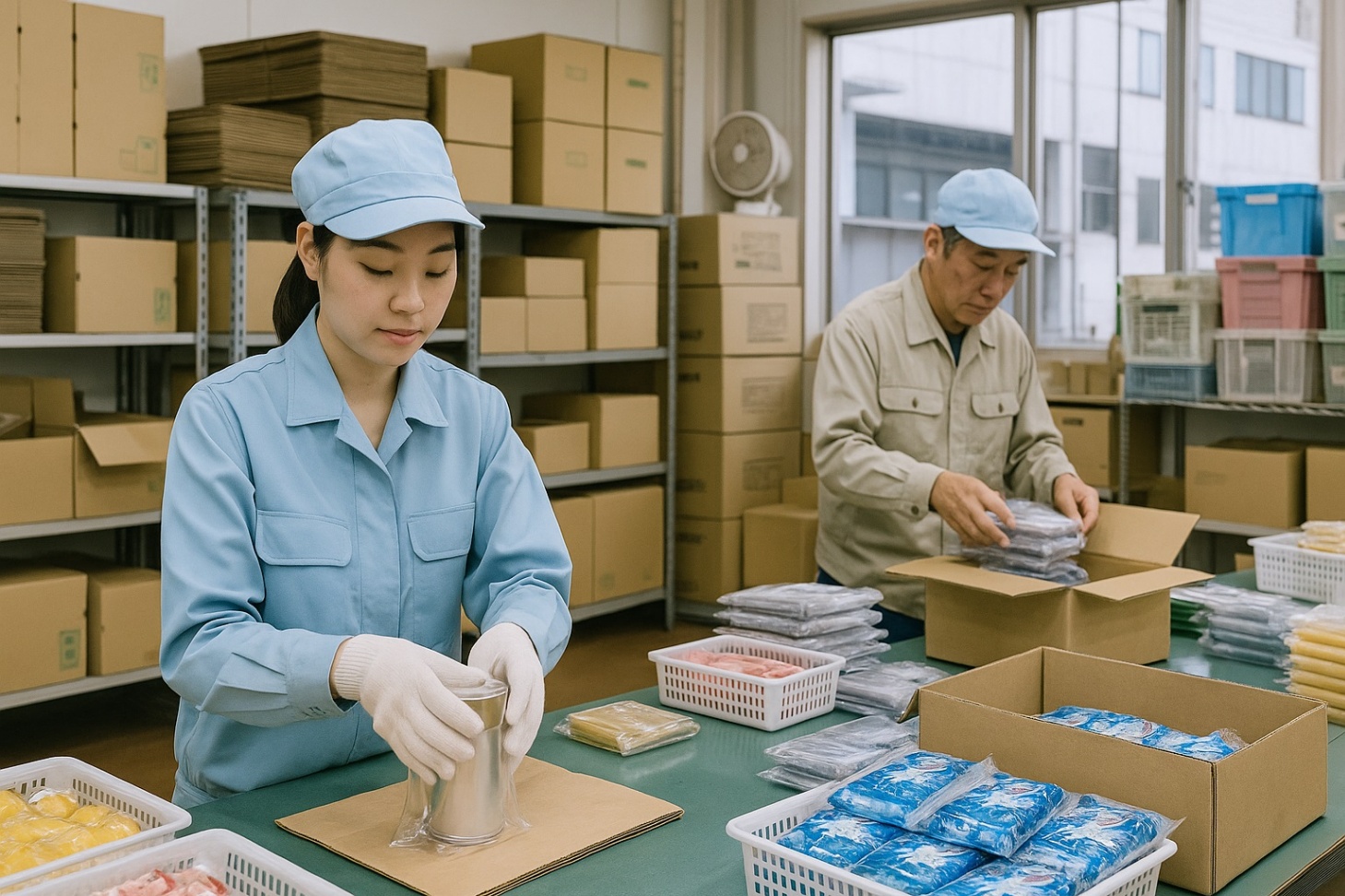Packing jobs in Japan offer an accessible pathway for individuals aiming to build a career quickly and efficiently.
You can enter the Japanese job market with limited barriers, or even if you’re exploring new opportunities beyond your current field.
Whether you’re seeking stability, skill-building, or just a reliable paycheck, unpacking the essentials of these positions can help move your plans forward.
Overview of Packing Roles in Japan
Packing roles form the backbone of Japan’s robust logistics, warehousing, and manufacturing sectors.
Workers are responsible for preparing goods for shipment, safeguarding products, and ensuring quality right up to the delivery point.
It’s basic work, but also vital. I’ve seen candidates with almost no experience thrive just by bringing a solid work ethic and a bit of curiosity.
While repetition is part of the job, it’s also what makes these positions appealing for those who appreciate routine and clear expectations.
Types of Packing Roles
Not all packing jobs are created equal. The industry—and even the season—shapes what’s available.
Warehouse Packing Positions
Warehouse staff focus on getting orders ready for dispatch, and roles are often split into specialized duties.
- Order Picker: Selects products per order slips, often with time targets. Accuracy is crucial.
- Packer: Wraps, boxes, and secures items for safe shipping, catching damaged goods beforehand.
- Inventory Assistant: Keeps track of what’s coming in and going out, sometimes using handheld scanners or computers.
Manufacturing and Production Line Roles
This centers on the mass development of products.
- Assembly Line Packer: Inspects and packs products coming off the line; quality control is part of the daily routine.
- Material Handler: Brings necessary packaging supplies to the line, making sure operations don’t stall.
- Quality Control Inspector: Checks for defects, critical in electronics or delicate manufacturing. In some ways, this role feels like ‘packing plus,’ since you’re also the last defense against faulty goods.
Food and Beverage Packing Roles
The merchandise must be constantly packed for its distribution.
- Food Packer: Prepares meals, snacks, or ingredients for shipment while strictly following hygiene protocols.
- Labeler: Places ingredient, allergy, or expiration labels—sometimes with automated machines.
- Sealer: Uses machines to hermetically seal food items to extend shelf life and ensure safety.

Seasonal and Temporary Roles
Occasional jobs that you can take for extra income.
- Holiday Packer: Extra hands for peak times, like end-of-year gift shipments.
- Temporary Loader: Handles heavy box loading—physically demanding, but well-paid during crunch periods.
- Stock Replenisher: Refills packing supplies and restocks as product demand peaks (a good stepping stone for beginners, honestly).
Required Education and Training
Here’s the good news. Most packing jobs in Japan require little formal education. Still, a certain skill set can give you the edge.
Many employers appreciate high school diplomas, although some positions may not require them.
Training is frequently provided, especially for machinery or safety procedures.
Factories and warehouses in Japan have strict guidelines. Knowing standard protocols—even just by reviewing online resources—can give you a head start.
Essential Skills: Attention to Detail, Teamwork, and Communication
Little things matter. A mislabeled box or missing barcode can cause real problems down the line.
Rarely a solo task. Workflows depend on clear, quick cooperation—even if you don’t share a language fluently.
Simple reporting and the ability to ask for clarification are appreciated more than perfect Japanese in many cases.
Certifications That Boost Your Chances
Forklift License is not required for every job, but is especially valued in larger warehouses.
OSHA (or equivalent) Safety Certification demonstrates a solid understanding of safe working practices.
Food Handling Certificate is often mandatory for roles in food and beverage packing.
How to Apply for Packing Roles in Japan
Securing a job comes down to smart searching and making your application materials work for you.
- Online Job Boards: Sites like GaijinPot, Daijob, and Indeed Japan frequently list packing roles. Use filters for location, contract length, and estimated pay. Check daily—jobs fill quickly.
- Company Career Pages: Many logistics giants, like Yamato Transport or Sagawa Express, advertise directly on their websites. Sometimes, applying here means less competition.
- Recruitment Agencies: Temp agencies such as Tempstaff or Manpower Japan connect applicants to large-scale and short-term jobs, often expediting the interview process.
Craft a strong resume and cover letter. Note any experience with order fulfillment, shipping, or even just detail-oriented volunteering.
HR prefers easy-to-read bullet points—keep it simple and avoid long blocks of text.
Employers want to see that you want the job, not just a paycheck. If you’re interested in building a career, mention that, even if you’re not 100% committed yet.
Salary Expectations
Salaries can range quite a bit, depending on area, employer size, and whether you work night shifts or overtime.
| Role | Expected Hourly Wage (¥) |
|---|---|
| Order Picker | 1,100 – 1,300 |
| Packer | 1,000 – 1,200 |
| Inventory Assistant | 1,200 – 1,400 |
| Assembly Line Packer | 1,000 – 1,300 |
| Material Handler | 1,100 – 1,400 |
| Quality Control Inspector | 1,200 – 1,500 |
| Food Packer | 1,050 – 1,250 |
| Labeler | 1,000 – 1,200 |
| Sealer | 1,050 – 1,300 |
| Holiday Packer | 1,200 – 1,400 |
| Temporary Loader | 1,100 – 1,300 |
| Stock Replenisher | 1,000 – 1,200 |
Keep in mind, overtime—quite common in Japan—can increase these numbers, as can working unpopular shifts.

Benefits of Packing Roles
Why stick with packing jobs? Surprisingly, there are more perks than most expect. Companies invest in keeping staff healthy and involved.
Medical and dental insurances are fairly standard in large companies; smaller firms may offer partial coverage.
Annual check-ups and sometimes subsidized gym memberships.
I’ve even noticed some employers offering small holiday bonuses or giving employees occasional product samples, so it’s not always just about paychecks.
Final Thoughts on Packing Jobs in Japan
Overall, packing jobs in Japan can be a stepping stone to broader career options or a long-term solution for those who value routine and hands-on work.
These roles generally don’t require advanced qualifications, but they do reward diligence and reliability.
If you’re ready to commit and steadily improve your skills, opportunities for advancement happen—sometimes sooner than you’d expect.


